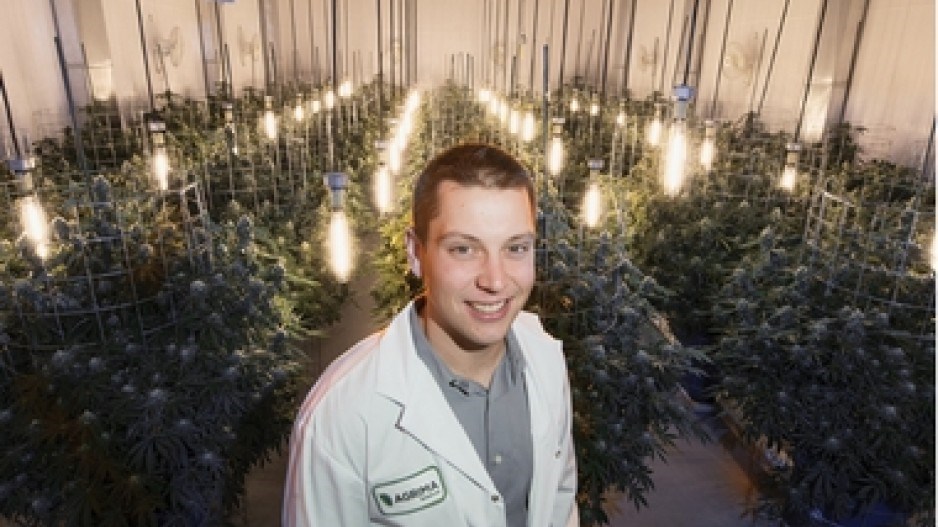Agrima Botanicals had everything ready to go for its medical marijuana facility as the April deadline approached for new federal regulations.
Its 1,200-page application to Health Canada had been filed in November, and by April the Maple Ridge operation was up to code as far as Agrima chief operations officer James Poelzer could tell.
“[Health Canada] asked us to confirm if everything was indeed complete … and then everything just sort of stopped.”
Agrima has been waiting nearly six months for the final Health Canada inspection it needs before it’s granted a licence under the new Marihuana for Medical Purposes Regulations (MMPR).
In the meantime, the company has been spending money to maintain its facility while no revenue is coming in.
Such financial and bureaucratic uncertainties in the emerging medical marijuana industry are not unique.
True Leaf Medicine first applied for a licence in July 2013, according to CEO Darcy Bomford.
But Vernon blocked the use of a property in the B.C. Interior municipality for a medical marijuana facility. Bomford then had to restart the application in April 2014 once a new location was found in nearby Lumby.
“I was hoping they’d just amend the application with the new location,” Bomford said, “but they don’t allow you to transfer locations on the application. You have to basically start from scratch.”
True Leaf, whose board chairman is former B.C. premier Mike Harcourt, has secured an option on a new building, which it’s paying for each month.
“It’s a financial strain, for sure,” Bomford said.
There are 190 B.C. applicants vying for a licence under the MMPR as of July 29, according to Health Canada.
“Timelines after screening leading to a licence have varied significantly, in part as a result of the completeness and quality of the application, the readiness of the applicants, and the extensive security checks,” a Health Canada spokeswoman said in an email.
Out of the 1,009 applications submitted in Canada as of August 25, the federal agency said 462 were returned because they were incomplete, another 201 were refused and 32 were withdrawn.
That leaves Health Canada with a backlog of 314 active applications, while only 13 companies have received licences under the MMPR.
Thunderbird Biomedical Inc. – one of the few companies to receive a licence – waited nine months before its application was approved in February, according to investor Kam Thindal, managing partner of Hamza Thindal Capital Corp.
“There doesn’t seem to be an exact pathway that’s carved out,” he said, adding the company hired a professional consultant to advise them on how to produce the best application.
“I think it’s more so to do with the quality of the application.”
Poelzer said he’s followed up with Health Canada numerous times, but the federal agency hasn’t provided Agrima with any feedback or an inspection date.
He and Bomford both said they suspect a lack of Health Canada staff available during summer months could have contributed to the long delays, but a spokeswoman with the federal agency couldn’t confirm that was the case.
Poelzer said Agrima’s investors have already sunk millions into a business that appears no closer to getting off the ground than it was in April.
To stay afloat, he said, he’s retained only key staff members to maintain the facility and ensure it’s ready to go into production the moment the application is approved.
“[We’re] being very cautious with where our resources are going to.”
Poelzer added that the company is relying on funds from its investors’ other businesses to support operating costs.




